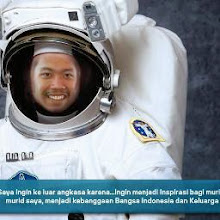Edited by:
Arip Nurahman
(Teacher and Professional Lecturer)
Guru dan Dosen Profesional
Amin
Arip Nurahman
(Teacher and Professional Lecturer)
Guru dan Dosen Profesional
Amin
 | |
| General information | |
|---|---|
| NSSDC ID | 1991-027B |
| Organization | NASA |
| Major contractors | TRW |
| Launch date | 5 April 1991 |
| Launched from | Kennedy Space Center |
| Launch vehicle | Space Shuttle Atlantis STS-37 |
| Mission length | 9 years, 2 months |
| Deorbited | 4 June 2000 |
| Mass | 17,000 kg (37,000 lb) |
| Orbit height | 450 km (280 mi) |
| Orbit period | 90 min (1.5 h) |
| Telescope style | Scintillation detectors |
| Wavelength | Gamma |
| Diameter | N/A |
| Collecting area | Varies by instrument |
| Focal length | N/A |
| Instruments | |
| BATSE | all-sky monitor |
| OSSE | pointed detectors |
| COMPTEL | imaging telescope |
| EGRET | wide field telescope |
| Website | NASA Compton Gamma Ray Observatory |
Space observatory
A space observatory is any instrument in outer space which is used for observation of distant planets, galaxies, and other outer space objects.A large number of observatories have been launched into orbit, and most of them have greatly enhanced our knowledge of the cosmos.Performing astronomy from the Earth's surface is limited by the filtering and distortion of electromagnetic radiation due to the Earth's atmosphere.
This makes it desirable to place astrononomical observation devices into space.As a telescope orbits the Earth outside the atmosphere it is subject neither to twinkling (distortion due to thermal turbulences of the air) nor to light pollution from artificial light sources on the Earth.
But space-based astronomy is even more important for frequency ranges which are outside of the optic window and the radio window, the only two wavelength ranges of the electromagnetic spectrum that are not severely attenuated by the atmosphere.
For example, X-ray astronomy is nearly impossible when done from the Earth, and has reached its current important stand within astronomy only due to orbiting satellites with X-ray telescopes such as the Chandra observatory or XMM-Newton observatory.
Infrared and ultraviolet are also greatly blocked.
Compton Gamma Ray Observatory
The Compton Gamma Ray Observatory (CGRO) was the second of the NASA "Great Observatories" to be launched to space, following the Hubble Space Telescope.The observatory was launched on the Space Shuttle Atlantis, mission STS-37, on 5 April 1991.It was deployed in low earth orbit at 450 km in order to avoid the Van Allen radiation belt.It was the heaviest astrophysical payload ever flown at that time, at 17000 kg. The CGRO is part of NASA's Great Observatories series, with the Hubble Space Telescope, the Chandra X-ray Observatory, and the Spitzer Space Telescope.
See also
References
- ^ "Gamma-Ray Astronomy in the Compton Era: The Instruments". Gamma-Ray Astronomy in the Compton Era. NASA/ GSFC. http://heasarc.gsfc.nasa.gov/docs/cgro/epo/brochures/compton/bro5.html. Retrieved 2007-12-07.
External links
Arip Nurahman
Guru dan Dosen Profesional
Semoga Bermanfaat

























No comments:
Post a Comment